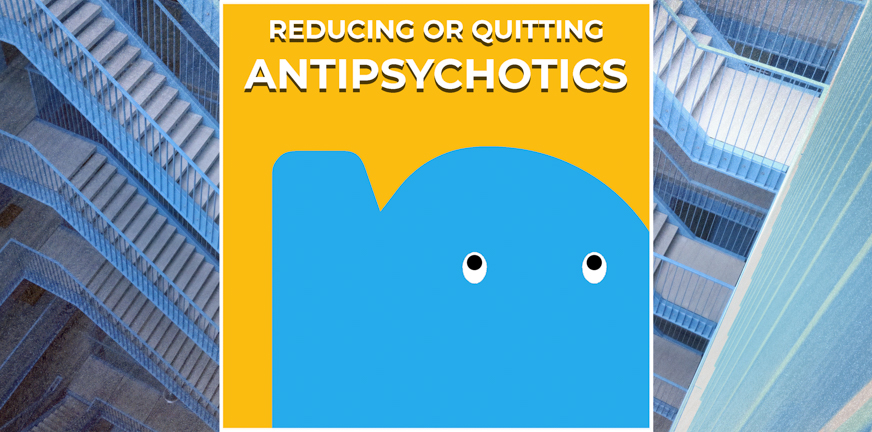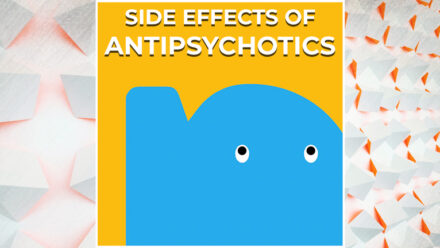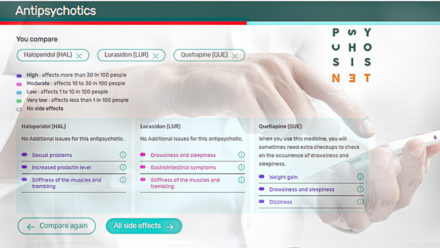
Never decide to reduce medication on your own. Instead you should always discuss this with your therapist first. When you lower the dosage too quickly or suddenly stop completely, you can suffer bad side effects (such as nausea, sweating, agitation, muscle pain and sleeplessness) or even another psychosis.
How to stop or reduce antipsychotics?
When reducing medication, it is essential that you do this gradually and under supervision. Together with your doctor, you can make a step-by-step reduction programme and talk regularly about how you are doing and feeling during the process.
The best time to reduce medication is after you have learnt to deal with your psychotic episodes and have gained insight into your vulnerability AND resilience. Some kind of psychotherapy can be very helpful for learning this. What are your triggers? What are your signals that tell you problems are getting worse, and how will you respond to these signals? It is important to first consider these questions before you want to reduce antipsychotics.
You may also benefit from finding a support group and/or people with lived experience. Talking to people that are going (or have gone) through the same process can be very helpful.
Here are our detailed tips on how to reduce your meds.
The main rule for reducing antipsychotics: the more gradual, the better
Sometimes it takes several months (and in rare cases even years) to get off your medication. And at times you may need to take a break from the process and stay where you are. This way you keep the risk of withdrawal symptoms or relapse to a minimum.
You should also tell (some of) your friends or other people when you and your therapist together have decided to reduce medication. It is important that they can keep an eye you on are and see whether problems are coming back. When reducing and quitting medication, there is always a chance that problems will come back or get worse after several weeks or months. You do not always realise this yourself, especially when you are feeling better because you are free from the side effects.
You can keep track of how you are doing after you start reducing antipsychotics by filling out the antipsychotic effect and side effects checklist from time to time. Using PsyMate can also help you keep track of how you are doing.
Perhaps you are not (yet) ready to come off of antipsychotics completely and your doctor advises you to keep using them. In that case, you and your doctor should find out together what is the smallest possible dosage for you. And possibly, further reduction is possible again later (and maybe even more gradually).
Your doctor may be reluctant to help you stop the medications
Experiments are necessary on your way to recovery. That includes experiments with your medication. Your doctor should always be willing to discuss experiments to taper your medication according the process of shared decision making. If your doctor is reluctant to discuss tapering experiments, remind him/her of the fact that shared decision making is considered essential in modern medicine.
Please read our tips on how to reduce your meds.
External websites:
- Medline Plus Information about specific medicines and patient leaflet
- Mind.org on info about driving and medication




